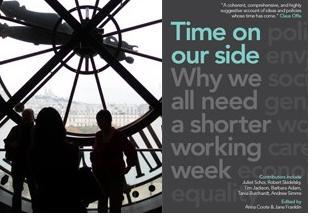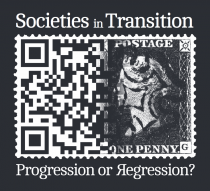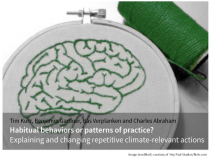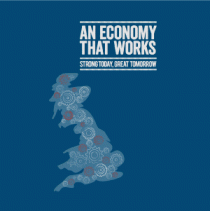- About
- Team
- Projects
- Children and the Environment
- ELiCiT (Exploring lifestyle changes in transition)
- Foundations for Sustainable Living
- HABITs
- Mapping Rebound Effects
- PASSAGE (Prosperity and Sustainability in the Green Economy)
- Policy Dialogue
- Price Responsiveness of Demand in Energy
- Resilience and Sustainable Lifestyles
- Sustainability Transitions in Food Systems
- Sustainable Living in Remote Rural Scotland
- Publications
- News
- Events
Time on our side
 The new book "Time on our side: why we all need a shorter working week", published by the New Economics Foundation (nef), explores the nature and value of time and discusses the idea that a shorter working week would lead to healthier, more fulfilling and sustainable lives and be better for the environment.
The new book "Time on our side: why we all need a shorter working week", published by the New Economics Foundation (nef), explores the nature and value of time and discusses the idea that a shorter working week would lead to healthier, more fulfilling and sustainable lives and be better for the environment.About
Tim Jackson: The trouble with productivity. In: Coote, A & J Franklin (Ed.), Time on our side: why we all need a shorter working week. New Economics Foundation, London: 2013 (p.25-31)
In his commentary "The trouble with productivity" SLRG Director Tim Jackson challenges the argument that more labour productivity inevitably leads to more growth and more jobs. What happens if we let go of our fetish for labour productivity? How can we make an economy work when it isn’t chasing continual growth? We might rely less on technological developments and more on building an economy around care and culture. These are areas where it seldom makes sense to apply conventional productivity goals. Once we understand that human labour is at the heart of society, we can think again about how we experience and value time. It’s a slippery commodity. More things can happen in a few minutes of doing absolutely nothing, than in a very full day of hard-pressed paid employment. Thinking differently about time helps us to reassess the value of what we do and to challenge assumptions about productivity and growth.
Angela Druckman, Ian Buck, Bronwyn Hayward and Tim Jackson: Time, gender and carbon: how British adults use their leisure time. In: Coote, A & J Franklin (Ed.), Time on our side: why we all need a shorter working week. New Economics Foundation, London: 2013 (p.101-123)
The SLRG output by Angela Druckman, Ian Buck, Bronwyn Hayward and Tim Jackson discusses the necessities to change the way we do things in our daily lives with respect to the UK’s challenging targets for cutting greenhouse gas emissions. One way is to focus on the goods people buy and on shifting to alternatives with a lower impact. But it is just as important to change the way people use their time. This essay explores the greenhouse gas emissions per unit of time spent on different types of unpaid activity, such as household chores and leisure pursuits, by an average British adult. How does time use vary within households, and how does this affect carbon emissions? The authors find that leisure activities are more closely associated with lower carbon emissions than non-leisure activities, and that a higher proportion of an average man’s carbon footprint is due to leisure than an average woman’s. They consider the implications for the varying roles carried out in different types of household, with carbon as a potential marker for social justice, along with the implications for policies to reduce working time.













